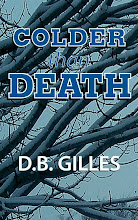My new play Sparkling Object opens on November 3, 2010 at The Canal Park Playhouse, a new theater in Tribeca in New York City.
Rehearsals have just begun and I've been doing rewrites and making changes in the script. There's nothing like hearing your lines not only read aloud, but "acted" by a first-rate cast. From the first read-through of the play I started hearing words and lines differently. Fortunately, most of what I'd written worked very well. But then there were the occasional lines, beats, moments and parts of scenes that didn't work.
I knew it the instant I heard them. After the first read-through the actors had questions. Good questions. Why does he say this? What do you mean by that? What does she want? Guess what? All the questions came in places where I knew something wasn't right. So I fixed them.
As rehearsal progressed there were more questions, not only from the cast but from the director. Important questions. Sometimes about the choice of a word or a pause or line that didn't feel right. Sometimes an actor or the director had a suggestion that made great sense or a question that drove me straight into a rewrite to do some clarifying.
With each rehearsal the script is getting better and tighter. And the changes I'm making are becoming fewer. I felt confident that the play worked on the first day of rehearsal. I feel even more confident now and that's because I've had the good fortune to have wonderful actors and a savvy director who inspire me to work harder to make the play--and our production--better.
I'll be taking a break from blogging for the duration of rehearsal and throughout the production. I expect to resume posting in January.
The Short, Sweet Destiny Of A Scene
Whether it’s in my own work or in the scripts of others that I read, there are often characters and scenes that have no reason for being there.
As writers, we may think we need this stuff while we’re doing the first draft or the first scribblings of a project, but there must come a time when we have to realize that something needs to be cut. I’m not referring to the “kill your babies” maxim attributed to William Faulkner. Those are moments, usually lines, that we fall in love with and with great reluctance, must excise.
Instead, I mean the scene or character that literally has no dramatic purpose. In layman’s turns: no reason for being in the script. If something has no dramatic purpose it’s got to go. Why? It either takes the reader/audience out of the story or it brings the forward movement of a story to a crushing halt.
A monologue in a play is acceptable. Plays are about words. They are talkie. Screenplays can’t be. There are exceptions, of course. Quentin Tarantino and a handful of other screenwriters/filmmakers can get away with it. But most can’t. You can’t. Maybe, near the end of your script, after, hopefully, the reader/audience is emotionally involved with your protagonist, maybe we’ll tolerate a two-page speech.
The plus side of the scenes and characters we eventually have to cut is that in the beginning we do need them because their initial dramatic purpose is to exist so you can get your main character from one place to another. Or it feels right at the time to have your protagonist talk to someone to give information. Or one day you’re not feeling it and you start writing a scene just to be writing and it suddenly resonates with you so you keep it.
If the writing of that scene gets you back on track it has fulfilled it’s destiny. And you can move on.
Subscribe to:
Posts (Atom)













